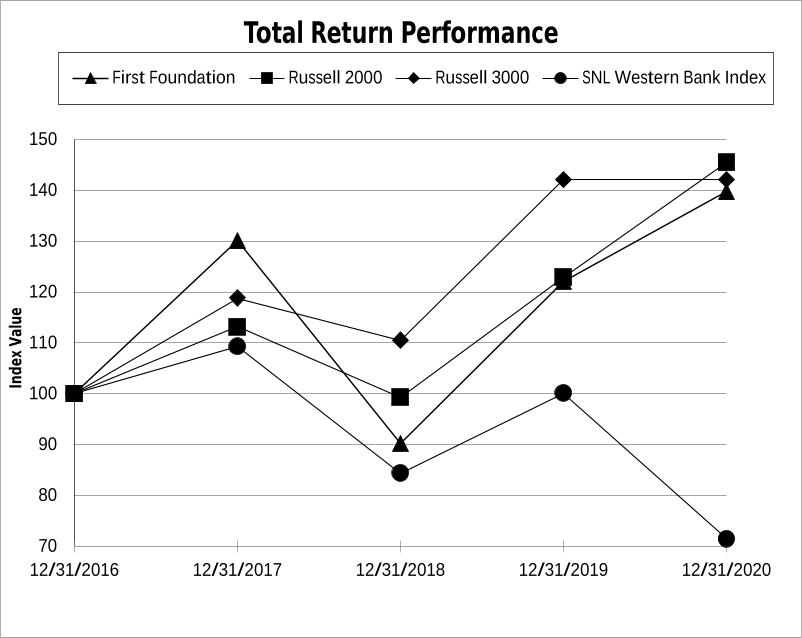relationship based on the client’s trust in that individual manager. As a result, the loss of a key investment manager to a competitor could jeopardize our relationships with some of our clients and lead to the loss of client accounts, which could have a material adverse effect on our business, financial condition, results of operations and prospects.
We may be adversely affected by the soundness of certain securities brokerage firms.
FFA does not provide custodial services for its clients. Instead, client investment accounts are maintained under custodial arrangements with large, well established securities brokerage firms, either directly or through arrangements made by FFA with those firms. As a result, the performance of, or even rumors or questions about the integrity or performance of, any of those brokerage firms could adversely affect the confidence of FFA’s clients in the services provided by those firms or otherwise adversely impact their custodial holdings. Such an occurrence could negatively impact the ability of FFA to retain existing or attract new clients and, as a result, could have a material adverse effect on our business, financial condition, results of operations and prospects.
Risks Related to Our Regulatory Environment
The banking industry is highly regulated, and legislative or regulatory actions taken now or in the future may have a significant adverse effect on our operations.
The banking industry is extensively regulated and supervised under both federal and state laws and regulations that are intended primarily to protect customers, depositors, the FDIC’s Deposit Insurance Fund, and the banking system as a whole, not our stockholders. We are subject to the regulation and supervision of the Federal Reserve Board, the FDIC and the DFPI. The banking laws, regulations and policies applicable to us govern matters ranging from the maintenance of adequate capital, safety and soundness, mergers and changes in control to the general business operations conducted by us, including permissible types, amounts and terms of loans and investments, the amount of reserves held against deposits, restrictions on dividends, imposition of specific accounting requirements, establishment of new offices and the maximum interest rate that may be charged on loans.
We are subject to changes in federal and state banking statutes, regulations and governmental policies, or the interpretation or implementation of them, including regulations to be implemented as a result of the enactment of the Dodd-Frank Act. Any changes in any federal or state banking statute, regulation or governmental policy, or the interpretation or implementation of any of them, could affect us in substantial and unpredictable ways, including ways that may adversely affect our business, results of operations, financial condition or prospects. Compliance with laws and regulations can be difficult and costly, and changes to laws and regulations often impose additional compliance costs. In addition, federal and state banking regulators have broad authority to supervise our banking business and that of our subsidiaries, including the authority to prohibit activities that represent unsafe or unsound banking practices or constitute violations of statute, rule, regulation, or administrative order. Failure to comply with any such laws, regulations or regulatory policies could result in sanctions by regulatory agencies, restrictions on our business activities, civil money penalties or damage to our reputation, all of which could adversely affect our business, results of operations, financial condition or prospects.
Federal and state banking agencies periodically conduct examinations of our business, including compliance with laws and regulations, and our failure to comply with any supervisory actions which we are, or may become, subject to as a result of such examinations may adversely affect us.
The Federal Reserve Board, the FDIC, and the DFPI may conduct examinations of our business, including for compliance with applicable laws and regulations. As a result of an examination, regulatory agencies may determine that the financial condition, capital resources, asset quality, asset concentrations, earnings prospects, management, liquidity, sensitivity to market risk, or other aspects of any of our operations are unsatisfactory, or that we or our management are in violation of any law, regulation or guideline in effect from time to time. Regulatory agencies may take a number of different remedial actions, including the power to enjoin “unsafe or unsound” practices, to require affirmative actions to correct any conditions resulting from any violation or practice, to issue an administrative order that can be judicially enforced, to direct an increase in our capital, to restrict our growth, to change the composition of our concentrations in portfolio or balance sheet assets, to assess civil monetary penalties against officers or directors, to remove officers and directors and, if such


